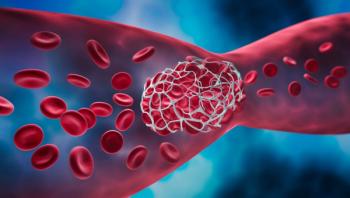
NICE Says No To Hemgenix Gene Therapy
The British cost-effectiveness agency said the evidence from a pivotal clinical trial wasn't strong enough to clarify Hemgenix's effectiveness relative to other therapies or satisfy concerns about its long-term durability.
Hemgenix (etranacogene dezaparvovec) is among cutting-edge hemophilia B treatments, but a British agency that does economic evaluations of health technologies came out against use of the gene therapy.
Hemgenix for moderately severe and severe hemophilia Bwas approved conditionally by the Medicines and Healthcare products Regulatory Agency (MHRA), the British equivalent to the FDA, in March 2023 for adults without a history of factor IX (FIX) inhibitors.
After close analysis of the pivotal HOPE-B study results, the country's cost-effectiveness agency, the National Institute for Health and Care Excellence (NICE), has recommended against using this drug as indicated under the conditional marketing authorization. NICE publishes guidelines on the use medicines and other technologies by the National Health Service (NHS).
Related:
NICE said the evidence from HOPE-B wasn't strong enough to clarify the drug’s effectiveness relative to other therapies, satisfy concerns about its long-term durability, or offer a compelling cost-effectiveness argument.
Hemgenix sports a list price of $3.5 million, but MHRA is paying a different undisclosed price based on negotiations that make a black box out of much of the cost-effectiveness analysis done by NICE.
“The cost-effectiveness estimates for Hemgenix are uncertain because of uncertainties in the long-term clinical evidence and some of the assumptions used to estimate cost effectiveness. They are also above what NICE considers an acceptable use of NHS resources, so Hemgenix is not recommended,” NICE stated in its newly published draft guidance.
The agency did leave the door open for reconsideration of its recommendation against use of this product, noting the phase 3 HOPE-B trial is ongoing and more convincing data may emerge.
NICE also requested that CSL Behring, Hemgenix’s manufacturer, release data for two patients whose outcomes were excluded from HOPEB analysis, saying this information could be material.
In the United States, Hemgenix was approved in November 2022 by the FDA and the first patient was administered the therapy in June 2023.
CSL Behring is negotiating “no cure, no pay” agreements with payers in the United States because of the sky-high price tag attached to this potentially curative “one and done” gene therapy.
NICE said in its review there are an estimated 300 patients in the United Kingdom who would be eligible for Hemgenix. Their bodies produce FIX at less than 2% of normal, which puts these patients in the moderately-severe to severe hemophilia B category.
One objection NICE raised to the HOPE B study was that there was no direct comparison of Hemgenix to prophylaxis FIX therapy, which the agency considered essential to an understanding of Hemgenix’s relative effectiveness.
The drug did reduce bleeding rates in patients, but NICE said a comparative study would have made it clear whether Hemgenix was superior in doing this relative to also-available standard half-life and extended half-life products.
An indirect comparison suggests that Hemgenix improves bleeding outcomes, “but there are problems with this evidence, such as differences between studies in the methods used, and the definition and measurement of bleeding outcomes. So, the indirect comparison results are highly uncertain,” NICE wrote.
NICE also noted that only 24 months of follow-up data were available from HOPE-B, resulting in high uncertainty about the durability of this gene therapy. “Only 6 out of 55 people (10.9%) in the analysis had 24 months of follow-up data, and 30 months follow-up data was available for only 3 out of 55 people (5.45%), which was then extrapolated to 60 years,” NICE wrote.
CSL Behring said it was disappointed with the decision but remains confident in Hemgenix and its role in the toolkit for treating hemophilia B.
"We firmly believe in the potential of (Hemgenix) to bring a change in the lives of eligible hemophilia B patients, offering them possible long-lasting therapeutic benefit,” Eduardo Cabas, General Manager, CSL Behring UK and Ireland, was quoted as saying in the company’s news release.
"NICE has expressed its commitment to a more progressive approach when assessing highly innovative medicines, and CSL Behring asks NICE to honour this commitment when assessing (Hemgenix) and other gene therapies,” Cabas said.
Newsletter
Get the latest industry news, event updates, and more from Managed healthcare Executive.























